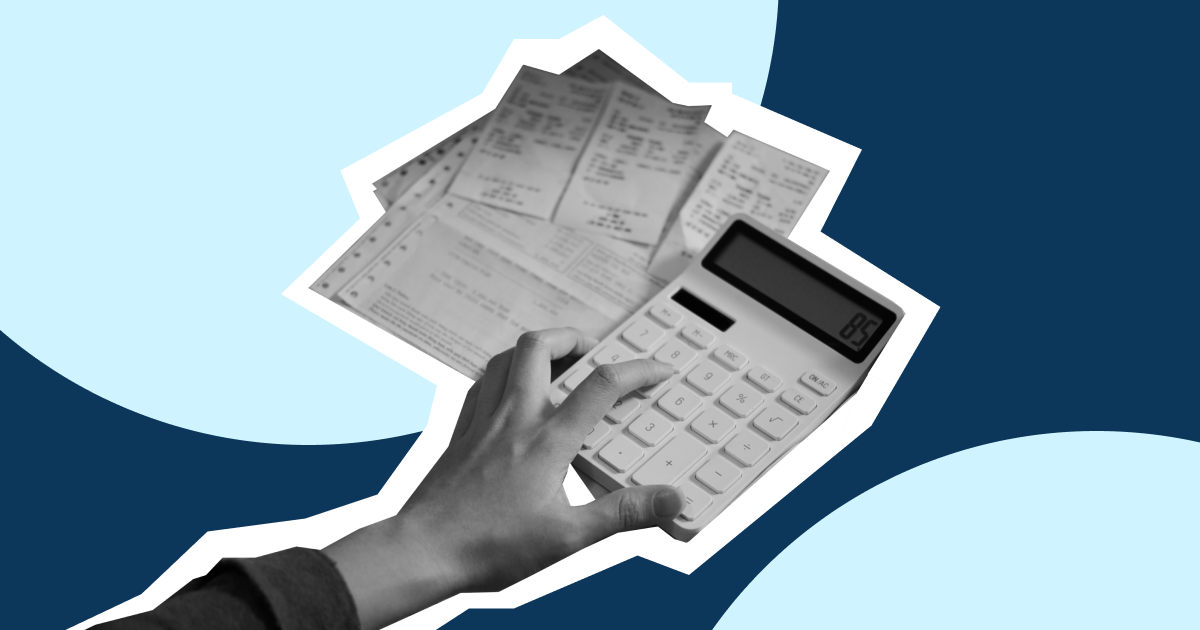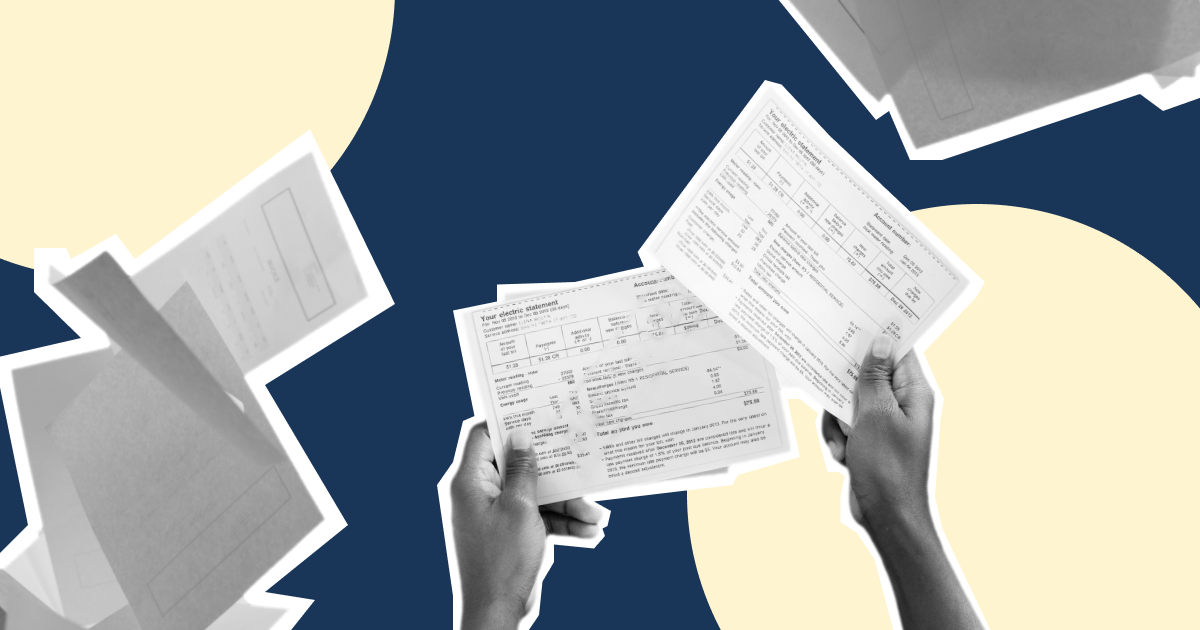Summary
If you're running a small or mid-sized business in Singapore, chances are you’ve reimbursed someone for a Grab ride, lunch with a client, or even a last-minute purchase of printer ink. These are called reimbursable expenses — costs incurred by employees on behalf of the company that the business later repays.
What Is A Reimbursable Expense?
Let’s start with the basics. Reimbursable expenses are costs incurred by your employees while performing their job duties. Think about your sales team booking Grab rides to meet clients or your marketing manager paying for a conference ticket. These costs are usually paid out of pocket and then repaid by your business.
Simple, right? But here’s where it gets important:
Reimbursable expenses are part of your general expense management program. That means managing employee expenses isn’t just about cutting cheques — it’s key to maintaining financial health and compliance in your business.
To put it plainly:
If you get sloppy with reimbursable expenses, you risk unhappy employees, messy records, and tax headaches.
If you handle them well, you build trust, improve cash flow management, and stay on the right side of the IRAS (Inland Revenue Authority of Singapore).
Types of Reimbursable Expenses for Business Purposes
Not all expenses are created equal. For reimbursement to be approved, the expense must be:
- Directly tied to business activities, and
- Reasonable in the eyes of your internal policy (and sometimes, IRAS).
Let’s look at the most common categories of reimbursable expenses you’ll come across in a Singapore business setting:
1. Business Travel Expenses
Whether it’s flying to KL for a regional meeting or taking a Grab across town, travel costs stack up. Reimbursable expenses in this category typically include:
- Transportation cosAirfare (e.g., Scoot, Singapore Airlines)
- Taxi/Grab rides (for business meetings)
- Hotel accommodations
- Meals during travel
- Airport parking and tolls
2. Office Supplies and Equipment
If your employee bought a mouse from Challenger or grabbed some paper from Popular Bookstore, those are reimbursable. Just make sure they align with work duties and aren’t excessive.
3. Professional Development
Courses, certifications, webinars — if your business supports learning (and it should), these qualify as reimbursable expenses:
- Online courses
- Conference entry fees
- Industry workshops or training programs
4. Client Entertainment
Meeting a client at a café? Taking them for lunch at Lau Pa Sat? If it’s business-related, it can be reimbursed. Be sure to record the purpose and attendees.
5. Software and Business Tools
Bought a Zoom Pro subscription or Canva Premium plan? These purchases support your operations and are absolutely reimbursable — just make sure it’s tied to job duties.
Defining Reimbursable Expenses
So, what exactly makes something reimbursable?
Here's a simple rule: if the costs incurred are for business-related purposes and directly help your employee do their job — it likely qualifies as a reimbursable expense.
Checklist for a Reimbursable Expense:
- Direct business purpose
- Reasonable cost
- Proper documentation (receipts, date, description)
- Submitted in a timely manner
- Aligned with company policy
Let’s say your marketing manager attends a conference at Marina Bay Sands. Here, expenses typically arise during travelling. The employee pays S$100 for the ticket and S$25 for a cab ride. Both expenses incurred are business related expenses so are reimbursable — provided she submits a receipt and includes a note on the business purpose.
But — if someone buys bubble tea every afternoon and tries to pass it off as “client entertainment,” you’ve got a problem. Since this may not fall under business related costs.
Again,
- Buying a laptop for work = reimbursable
- Buying a second phone “just in case” = probably not
Your accounting system needs to record these accurately.

Expense Reimbursement Policy
Here’s where a lot of small businesses in Singapore stumble — they don’t have a formal expense reimbursement policy. So, as a business owner, without a reimbursement policy, you risk:
- Employees submitting vague or non-eligible claims
- Delays in payment
- Misalignment between teams and finance
- Poor financial tracking
A proper expense reimbursement policy spells out:
- What qualifies as a reimbursable expense
- Limits or caps on each category (e.g., max S$80 for meals)
- Required documentation (e.g., receipts, claim forms)
- Submission timeline (e.g., within 7 days of the expense)
Pro Tip: Include your policy in your employee handbook or onboarding materials. A clearly defined expense reimbursement policy avoids friction and promotes transparency.
Managing Business Expenses (Without Losing Sleep)
In small businesses, especially those without a full finance department, managing reimbursable expenses can get chaotic fast. You want to simplify, not create bottlenecks.
Here's how to stay on top of things:
1. Use Expense Management Software
Still using Excel to track claims? It’s time to upgrade. Expense management software can automate submissions, approvals, and ensure timely reimbursements.
Options popular in Singapore include:
- Aspire (with smart finance tools built-in)
- Xero Expenses
- Zoho Expense
These tools often sync with accounting systems, making reconciliation a breeze.
2. Document Everything
Ask employees to upload receipts and add short descriptions to every claim. Missing paperwork causes delays and confusion — and may even lead to rejected reimbursements.
3. Track Employee Expenses by Category
Create expense categories in your accounting system (e.g., travel, meals, training). This helps your finance team budget better and identify unusual trends early.
Reimbursing Employees: The Right Way to Do It
Timely and fair reimbursement builds trust. When your employees know they’ll be reimbursed quickly and painlessly, they’re more likely to spend responsibly and keep receipts.
Common Expenses That Small Businesses Reimburse
Let’s list out common business expenses you should expect to reimburse:
- Travel expenses: airfare (e.g., S$300 round-trip to Malaysia), hotel (S$200/night), taxi fares (S$30 each trip)
- Meals and entertainment: dining costs with clients, capped at reasonable limits (e.g., S$100 per meal)
- Office supplies and equipment: from S$10 stationery to S$1,500 laptops
- Professional development: courses (S$500), conference tickets (S$1,000+)
- Transport costs: parking, ERP tolls, mileage (e.g., reimbursed at S$0.60 per km)
Reimbursement Methods:
- Bank transfers (e.g., FAST transfer within 1–2 days)
- Company credit card (less reimbursement, more control)
- Petty cash (only for small, urgent expenses — use sparingly)
Keep your reimbursement cycle short — ideally within 7 to 14 days. No one wants to wait till the next pay cycle to get their S$75 taxi fare back.
Make sure your employees understand the process. A simple flowchart during onboarding can do wonders.
Keep the process transparent. Let employees know:
- What documents do they need
- Who approves the claims
- When they get paid
This builds trust and avoids those awkward “Hey boss, any update on my expense claim?” conversations.

Company Guidelines on What Not to Reimburse
What’s not a reimbursable expense? Here’s a list you should spell out clearly in your policy:
- Personal meals or groceries
- Alcohol (unless for client entertainment with approval)
- Family travel during business trips
- Unapproved subscriptions
- Lavish or luxury items
Having strict company guidelines ensures fairness and keeps your finances lean, without awkward conversations later.
Expense Reporting Done Right
A quality expense report responds to three questions:
- What was the expense for?
- How much?
- Do you have proof?
Your report must have:
- Date of expense
- Description and reason
- Amount (in S$)
- Receipt image or attachment
- Project or client name (if any)
Have your team submit reports on a rolling basis — don't wait until month-end. Utilize automated reminders and cut-off dates to remain disciplined.
Approval Process: Fast, Clear, and Accountable
Who approves what?
In small companies, this often falls on the founder, manager, or a finance lead. But approval chaos can delay payments. So, define a clear hierarchy:
- Claims below S$100: Manager approval
- S$100–S$500: Department head
- Over S$500: Director or finance team
Every approver should check:
- Policy alignment
- Receipt verification
- Budget availability
Often, employees will write notes like “Lunch with client” — but it’s useful to have the approver or manager add a secondary confirmation or justification. This double-validation reduces the chance of abuse and keeps everyone honest.
Example:
- Employee note: “Grab ride to Orchard client office”
- Manager comment: “Confirmed meeting with XYZ Corp at 3 pm, 10 April”
This is especially helpful for larger claims — say, S$500+ — or frequent travellers.
The finance team plays a big role here, too — reviewing, flagging, and recording claims for accounting and audit purposes.
Payment and Reimbursement Process
Once approved, how do you actually pay?
Keep things smooth with a three-step flow:
- Approval completed by the designated authority
- Payment processed via bank transfer or accounting software
- Record updated in your books and expense tracking tool
Automate where possible, but always keep a human eye on large or suspicious claims. Timely reimbursements(within 7 days) show professionalism and earn your employees’ trust.
Tax Implications in Singapore
In Singapore, reimbursed expenses are not considered taxable income, as long as they’re for business-related activities.
But here's the catch: If your company pays more than the actual cost (say, a fixed travel allowance), the excess may be considered as taxable income.
Make sure you:
- Collect receipts
- Avoid flat-rate reimbursements unless properly justified
- Keep detailed logs for IRAS audits
And if you’re using an accountable plan structure (where all claims are verified), it can even reduce your tax exposure.
Let’s say your employee spends S$80 on lunch while meeting a client, and you reimburse them after verifying the receipt. That’s fine — not taxable. But if you just give a flat S$100 "allowance" for meals without requiring proof, that may be considered a perquisite (employee benefit) and subject to income tax.
Accounting and Record-Keeping: No Room for Guesswork
Accounting and compliance go hand in hand. Every reimbursable expense needs to be accurately logged, categorised, and stored.
Start with a solid Chart of Accounts in your accounting software (like Xero or QuickBooks). Don’t just file everything under “Expenses.” Instead, break it down into categories like:
- Travel – Reimbursable
- Client Meals – Reimbursable
- Office Equipment – CapEx
- Staff Welfare – Non-Reimbursable
In Singapore, businesses must retain expense-related documents for at least 5 years under IRAS guidelines.
- Use a cloud-based document management system
- Save receipts as PDFs or scanned images
- Name files clearly: ExpenseType_EmployeeName_Date_Amount.pdf
- Use folder structures like: 2025 > March > Travel > Client Meetings
This makes it easy to retrieve records during audits, whether internal, external, or from IRAS.
Here's where a lot of small businesses fall short: they reimburse employees, but don’t match the payment outflow with the expense claim in the books.
For example:
- Employee claims S$280 for a training workshop
- You transfer S$280 from your corporate account to their personal account
- But you forgot to reconcile the payment with the expense in your accounting system
That creates accounting blind spots. Over time, these add up and distort your expense reports.
Set up a quick end-of-month checklist:
- Are all claims properly documented?
- Are they matched with outgoing payments?
- Are there any anomalies in amounts?
- Is GST recorded correctly?
This small habit prevents small errors from becoming big compliance issues.
Be Audit-Ready: Singapore tax laws are strict, and being caught off-guard during an audit is no joke. Proper documentation, approval trails, and digital backups keep your business safe, save time during reviews, and show IRAS you’re running a tight ship.
Common Mistakes (And How to Avoid Them)
Let’s be honest — most reimbursement messes happen due to human error. Here are a few to look out for:
- Approving claims without receipts
- Letting months go by before employees submit reports
- No written policy
- Mixing personal and business expenses
- Delays in reimbursement
Prevention tip: Run a 30-minute quarterly training with your team on what qualifies as a reimbursable expense. It’ll save you hours later.

Conclusion: Keep It Fair, Fast, and Foolproof (with Help from Aspire)
Managing reimbursable expenses doesn’t need to be a headache. With the right systems, software, and policy in place, you can simplify everything and protect your business from messy finances or employee frustration.
Let’s recap the essentials:
- Define your reimbursable expense policy clearly
- Use tools to automate approvals and reporting
- Keep documentation tight and audits painless
- Reimburse employees quickly to build trust
- Make your finance team part of the process, not a bottleneck
If you're looking for a smarter way to handle business spending, Aspire offers all-in-one finance solutions tailored to small and mid-sized businesses in Singapore. From expense tracking to corporate card issuance and approvals, you’ll save time, money, and plenty of admin headaches.
Time to take control of your reimbursements — the smart, scalable way.

.webp)








%201.webp)


.webp)